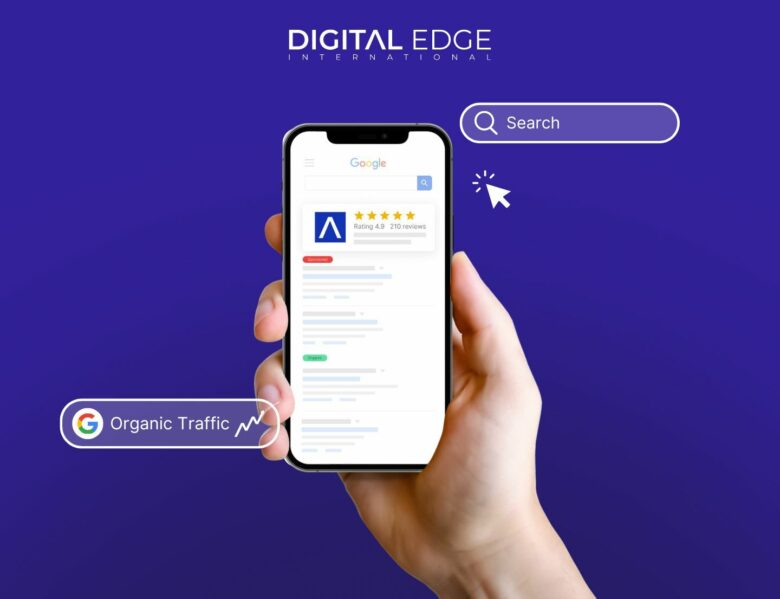Do you ever feel overwhelmed when you hear people talking about SEO? Don’t worry, you’re not alone. Even experienced business owners can find it difficult to understand all of the terminology that comes with SEO services Nashville. To demystify this concept, we’re going to break down some of the most common SEO terms so that you can start using them yourself. Armed with this knowledge, you’ll be on your way to improving your website’s search engine ranking!
Search Engine Results Page
A Search Engine Results Page, or SERP, is the page that a search engine returns with the results of a user’s query. The main goal of SEO is to get a company’s website to appear as high up on SERP as possible. SEO companies use a variety of strategies to achieve this, including keyword research, link building, and content optimization.
While SEO can be extremely effective at getting a website to rank higher on SERP, it is important to remember that there are many factors that go into how a search engine ranks websites. As a result, SEO should be seen as one piece of a larger marketing strategy.
Keyword research
SEO, or search engine optimization, is the process of optimizing a website for Google search with the goal of earning higher web traffic levels and improving the visibility of the site. SEO comprises both on-page SEO (the optimization of individual web pages) and off-page SEO (building links to the website from other websites).
In order to improve SEO, businesses must first conduct keyword research. Keyword research involves identify which keywords potential customers are using when they search for products or services like those offered by the business. Once these keywords have been identified, businesses can then optimize their website for these keywords, helping them to earn higher rankings in Google search results. Ultimately, keyword research is an essential part of any SEO strategy and can help businesses to reach a wider audience and earn more web traffic.
Volume
When it comes to SEO, keyword volume is an important metric to keep track of. Basically, keyword volume refers to the number of searches that are conducted for a particular keyword or phrase. This information can be helpful in a number of ways. First, it can give you an idea of how popular a particular keyword is. If a lot of people are searching for a certain term, then that’s a good indication that it’s worth targeting in your SEO efforts. Additionally, keyword volume can also help you to gauge the competition level for a particular keyword. If there are a lot of people searching for a certain term, then chances are that there will be a lot of websites vying for those same keywords.
Relevance
Any SEO company will tell you that keyword relevance is essential for a successful website. But what exactly is it? In short, it is the degree to which your website’s content is relevant to the keywords you are targeting. Keyword relevancy is important for two reasons. First, it helps to ensure that your website appears in search results for the right keywords. Second, it helps to ensure that your website’s visitors are actually interested in what you have to offer. There are a number of factors that contribute to keyword relevancy, including the title of your website, the keywords you use in your content, and the links that point to your site.
By making sure that your content is relevant to the keywords you are targeting, you can help to ensure that your website appears prominently in search results and that your visitors are more likely to be interested in what you have to offer.
Keyword density
Part of SEO includes understanding keyword density, or how often a particular keyword or phrase appears on a page in relation to the total number of words on the page. The ideal keyword density is between 1-2%, which means that for every 100 words on a page, the target keyword should appear 1-2 times. Keyword density is just one factor that contributes to SEO success, but it’s an important one. By paying attention to keyword density, you can help ensure that your website is properly optimized and has a better chance of ranking high in search results.
Anchor text
Another important SEO term is anchor text, which is the text that appears on a web page that links to another web page. The anchor text can either be keywords or phrases that describe the linked page, or it can be the URL of the linked page. Using keyword-rich anchor text is one way to tell Google what your website is about, which can help you earn higher rankings in search results. So, next time you’re creating links on your website, be sure to use relevant and descriptive anchor text to help boost your SEO efforts.
Indexing
Indexing is the process of adding a website or web page to a search engine’s database so it can be included in that search engine’s search results. When a web page is indexed, it means the search engine has found it, crawled it, and added it to their database. SEO is the practice of optimizing a website so as to increase its rank in the search engine’s index and thus improve its visibility. There are many different techniques used in SEO, from optimizing title tags and meta tags to on-page content and link building. The goal is to improve the visibility of a website so that it will attract more visitors from the search engine’s users. Ultimately, there are many different factors that go into SEO, and indexing is just one of them.
Understand common SEO terms to finetune your strategy and rank better online
Today, there are many SEO terms and strategies to keep in mind when optimizing a website. Keyword volume, relevance, density, anchor text, and indexing are all important factors in improving a website’s visibility in search engines. By understanding and implementing these concepts, you can help improve your website’s SEO and drive more traffic to your site!
If this is something you need support with, don’t hesitate to get in touch with our Digital Marketing Agency Nashville TN SEO experts today.



